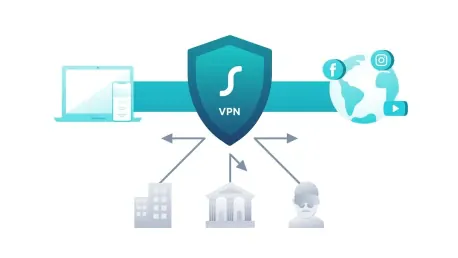In an era where digital surveillance and cyber threats are escalating at an unprecedented pace, the pursuit of robust privacy and security measures has never been more critical. The increasing demand for protecting online activities and personal data has led to a significant shift in how individuals approach online privacy. Central to this transformation are free Virtual Private Networks (VPNs), which have revolutionized the landscape by offering encrypted internet connections that safeguard against unauthorized access. By circumventing geographical restrictions and ensuring safer browsing, free VPNs have become vital tools for individuals looking to secure their digital presence without incurring additional costs. The importance of these technologies lies in their ability to empower users with the means to protect their data and online activities, making them indispensable in today’s digital world.
Rising Need for Robust Online Privacy
The evolution of online privacy needs is intricately tied to the heightened awareness and changing behaviors of internet users. As the digital world becomes more complex, users are becoming increasingly vigilant about the potential threats to their privacy. This heightened awareness has driven a demand for tools that can offer enhanced security and control over personal data. Free VPNs have emerged as a popular solution, enabling users to maintain privacy and protect themselves against cyber threats. The misuse of personal data by both government entities and corporations has further intensified these concerns, pushing a growing number of individuals toward adopting these security tools.
Additionally, the rising investments in surveillance technologies by government entities have sparked debates on how to balance national security and personal freedoms. The scope of digital surveillance today extends far beyond traditional means, leading many users to seek ways to shield their online activities. Free VPNs provide a means to navigate this complex landscape, offering encrypted connections that help maintain anonymity and secure communications. By encrypting internet traffic, VPNs ensure that sensitive information remains safeguarded from prying eyes, thereby offering a crucial layer of protection in an increasingly monitored online environment.
Democratization of Secure Online Experiences
The advent of free VPN services has democratized access to secure online experiences, ensuring that strong privacy measures are not limited to those who can afford paid solutions. While these free services sometimes come with limitations such as bandwidth restrictions or slower speeds, they nonetheless provide essential protection. Users can benefit from encrypted internet traffic, safeguarding personal information from cybercriminals and data snoopers. With free VPN services, every individual, regardless of financial constraints, can enhance their online security and anonymity.
Platforms like VPNLY exemplify how free VPN services are bridging the security gap for users worldwide. These dependable and user-friendly solutions facilitate secure browsing without the need for a subscription fee, making them accessible to a broader audience. By offering these services at no cost, free VPN providers have made significant strides in ensuring that all users can protect their digital presence. These advancements are pivotal in the ongoing battle for online privacy and digital security, as they allow users to reclaim control over their personal data and secure their online activities.
Impact on User Behavior and Industry Trends
The widespread availability of free VPNs has had a profound impact on user behavior and industry trends. As more individuals adopt these tools, there is a noticeable shift toward greater online caution and awareness. Users are more mindful of sharing personal data and are increasingly employing VPNs to safeguard their digital identities. This behavioral change is a response to growing concerns over data surveillance and the erosion of digital rights, which have become more pronounced in recent years.
In response to this demand, tech companies and regulatory bodies are being urged to prioritize privacy and security measures. The continued rise in free VPN usage is expected to spur further innovation and accountability within the industry. As users become more empowered with the tools to protect their online presence, there is a collective push towards a more secure and privacy-focused internet future. The influence of free VPNs is likely to drive the development of more advanced privacy solutions, ultimately shaping the trajectory of online privacy.
The Future of Free VPNs and Online Privacy
The rise of free VPN services has made secure online experiences more accessible, ensuring strong privacy measures are available even to those who can’t afford paid options. Although free VPNs may have some limitations, such as bandwidth caps or slower speeds, they still offer crucial protection. These services encrypt internet traffic, helping safeguard personal information from cybercriminals and data snoopers. This means that everyone, regardless of financial limitations, can enhance their online security and anonymity with the help of free VPNs.
Platforms like VPNLY demonstrate how free VPN services are closing the security gap for users worldwide. These reliable and user-friendly options enable secure browsing without requiring a subscription fee, making them accessible to a wider audience. By providing these services at no cost, free VPN providers have significantly advanced the cause of digital security and online privacy. These developments are critical in the ongoing fight for protecting personal data and securing online activities, empowering users to regain control over their digital presence.









